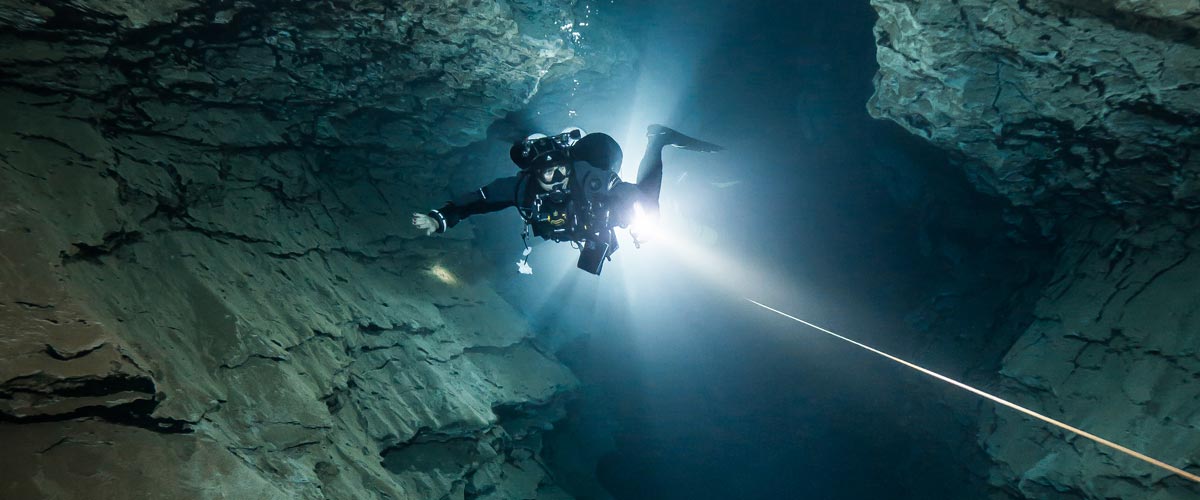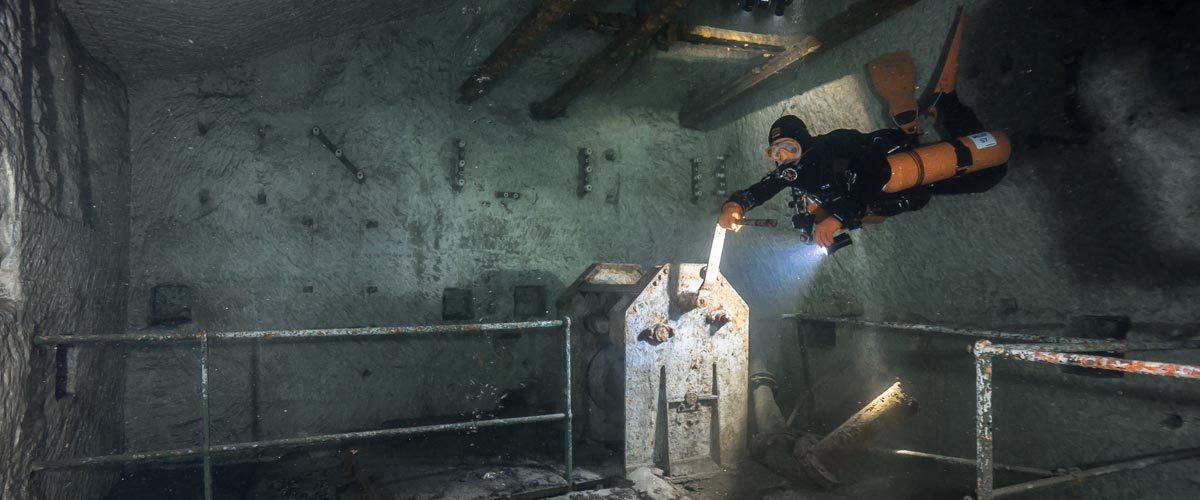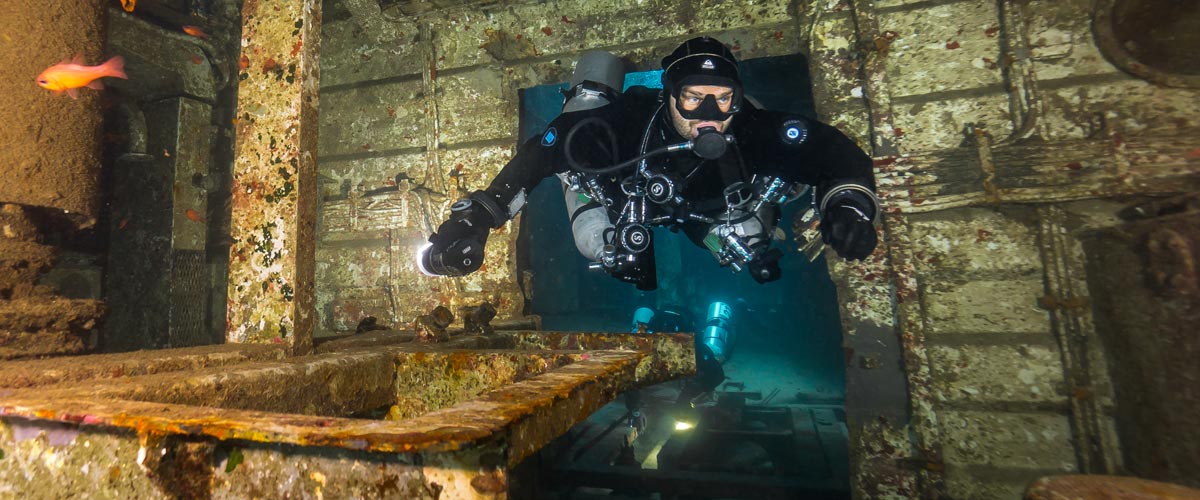Dive Training Blogs
Scuba Professional: Column No. 2
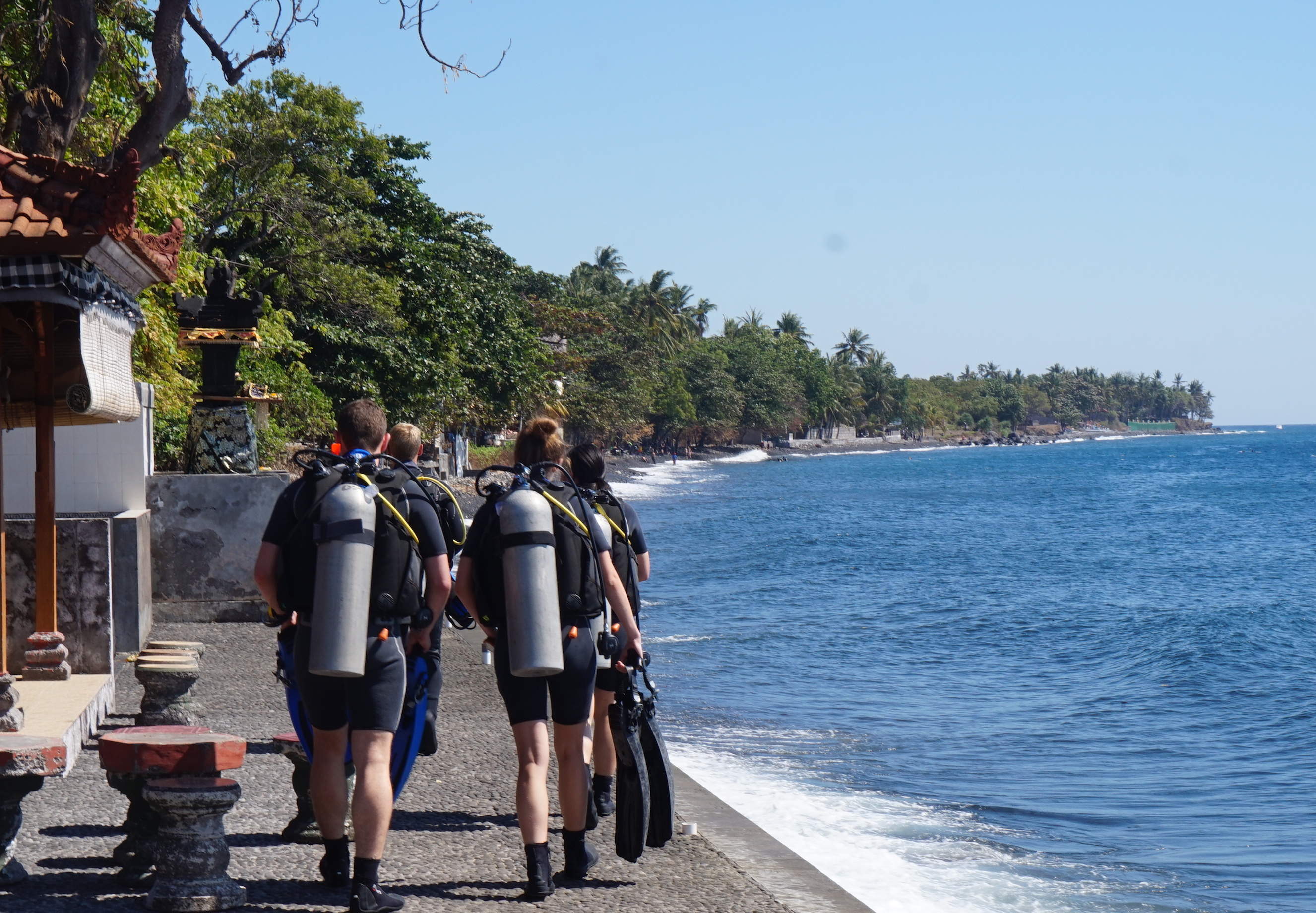
Sabotaging the Industry from Within
Simon Pridmore argues that the poor treatment meted out to new scuba divers could be a significant factor contributing to the industry’s recruitment and retention problems.
At a time when the scuba diving industry is facing recruitment and retention challenges, to such an extent that it is asking divers to make a special effort to introduce their friends and colleagues to the sport, (something most divers do anyway,) perhaps the industry should be looking closely at its own procedures to see if the recruitment and retention problems are partly self-generated.
I say this because a number of folk have recently told me that, despite being fit, healthy and good swimmers, they had tried scuba diving once and decided that it wasn’t for them.
Let’s examine that more closely. In other words, these people were sufficiently attracted by the idea of scuba diving to pay money for a course of lessons or a scuba experience. Then the dive centre and individuals concerned in delivering the product somehow managed to put them off ever doing it again.
Deliberately Providing Poor Service
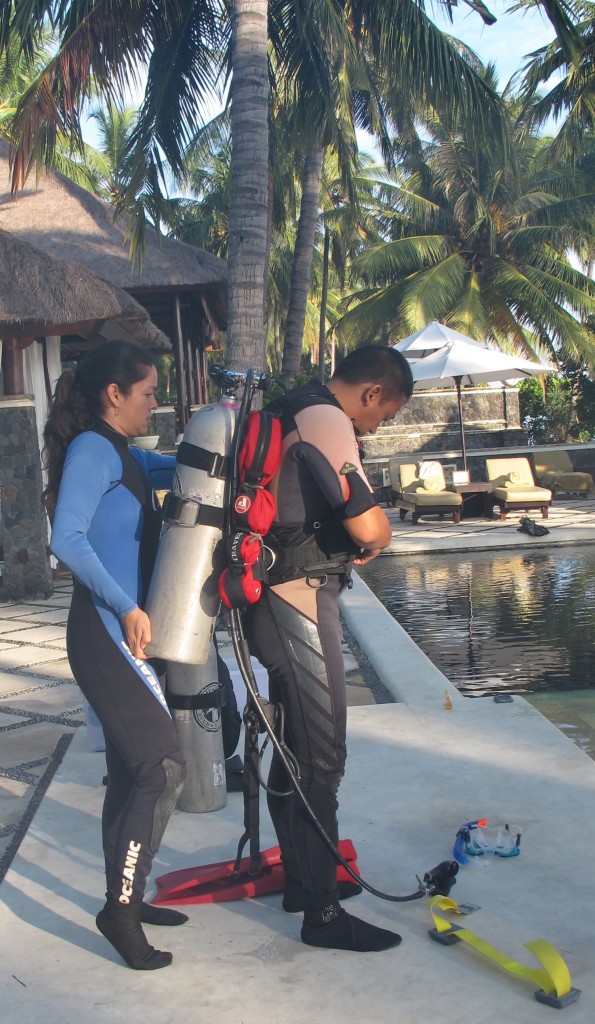 This was in my mind the other day when I was chatting with a dive centre manager. Watching some of his customers getting ready to do a pool session, I remarked on the poor condition of the rental gear that his operation issued to beginners. “Of course,” he said, “we do it deliberately. It encourages them to buy their own equipment later.”
This was in my mind the other day when I was chatting with a dive centre manager. Watching some of his customers getting ready to do a pool session, I remarked on the poor condition of the rental gear that his operation issued to beginners. “Of course,” he said, “we do it deliberately. It encourages them to buy their own equipment later.”
I was stunned. His thinking is about as wrong-headed as you can get. If new divers are comfortable and have equipment that works well and facilitates easier learning, they will enjoy the experience more and they will be more likely to want to do it again and again. And, indeed, they will go on to buy their own equipment; probably the very items and brands that they used and became familiar with on their course. If, on the other hand, the equipment they are given is old, uncomfortable and awkward to use they are less likely to have a good time and they may well just decide not to pursue the sport and take up another activity instead. Scuba diving will have lost yet another customer.
The dive centre manager I spoke to is not alone in his thinking. A few years ago, I was consulting for a hotel chain that was looking for a local operator to run their on-site dive centre. One applicant, a very well known company with many branches, invited me and one of the hotel chain’s directors to go diving with their flagship dive centre in order to impress us. The hotel director was a new-ish diver with sixty logged dives but did not own his own gear. “No problem,” the operator said, “you can use ours.” All the equipment was pretty shabby but it was the fins that particularly drew our attention. Where the foot pocket joined the blade there was a wear line and you could easily bend the blades up and down beyond 90 degrees. In the water the fins just flapped around uselessly. Needless to say, the operator did not get the job!
Examples abound. Dive centres frequently give new divers shorty wetsuits to use, even though they will be spending much of their course time kneeling on the pool bottom or seabed. The centres would rather have divers with badly chafed knees than have to replace full-length wetsuits when the kneepads wear out. One lady told me that for her first pool session with a very large and successful dive centre in the Caribbean, she was not offered a wetsuit at all and ended the day with knee and elbow scrapes that almost brought her to tears.
In her case, she was also left with sores on her upper body caused by the straps of her ill-fitting BCD and encountered a host of other equipment issues. The depth gauge on her console did not work and when this was pointed out to the instructor he just said, “it doesn’t matter, we are in a pool; we know how deep it is!” She was not given a dive computer or watch to use and, as she was being taught how to execute a five-point descent, she was amused to be instructed to stare uselessly at her empty wrist when she came to the “check time” point in the procedure.
She terminated the course after day one but, luckily for the industry, she persevered in her quest to learn to dive, found another dive shop and instructor and now does over 100 dives a year all around the world. But she is an exception: we rarely get a second chance at recruiting someone to the sport if we mess it up first time.
This Does Not Compute
The issue of dive computers seems to be a particular problem for many dive centres. We live in technological times: there are a number of very good dive computers on the market that dive centres can buy wholesale for a fraction of what they charge for a beginners’ course and no diver with any experience would ever consider diving without a computer. Nevertheless, many operations refuse to give divers a computer and teach them how to use it in their beginners’ course. Neither do many resorts offer computers for hire, despite the fact that they could easily make back the cost of a rental unit in only a few days. When divers enquire, they are often told that they do not need a computer because their guide or instructor has one.
Try It Yourself!
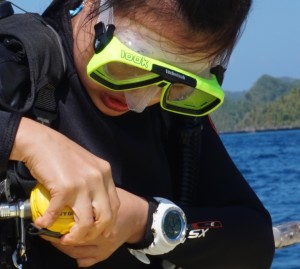 Instructors and dive centre owners should perhaps try diving with the equipment that they give beginners. They should experience for themselves how uncomfortable and difficult it is to use and maybe then they might have some sympathy and improve the quality of their service. Those who do not give EVERY one of their divers, no matter how inexperienced, the means to record depth and time on EVERY dive should reflect on how naked they would feel diving without a computer.
Instructors and dive centre owners should perhaps try diving with the equipment that they give beginners. They should experience for themselves how uncomfortable and difficult it is to use and maybe then they might have some sympathy and improve the quality of their service. Those who do not give EVERY one of their divers, no matter how inexperienced, the means to record depth and time on EVERY dive should reflect on how naked they would feel diving without a computer.
I can just imagine the excuses that dive centre managers might come up to explain why they do what they do pleading financial and time constraints or complaining about competitors that force them to cut corners. But there is no escaping the fact that service quality in many areas of the scuba diving industry, in particular the sector that deals primarily with introducing people to the sport, is sadly lacking.
A final point for reflection: successful businesses in every field know how important it is to look after new customers with special treatment and services. What do we do in the dive industry? Make them feel uncomfortable, unappreciated and disrespected. We should be grateful that any of them stick around!
Read more from Simon in his latest release Scuba Professional – Insights into Sport Diver Training & Operations and his bestselling book Scuba Confidential – An Insider’s Guide to Becoming a Better Diver, both available from Amazon in paperback and e-book versions.
Blogs
Intro to Tech: What is it about?
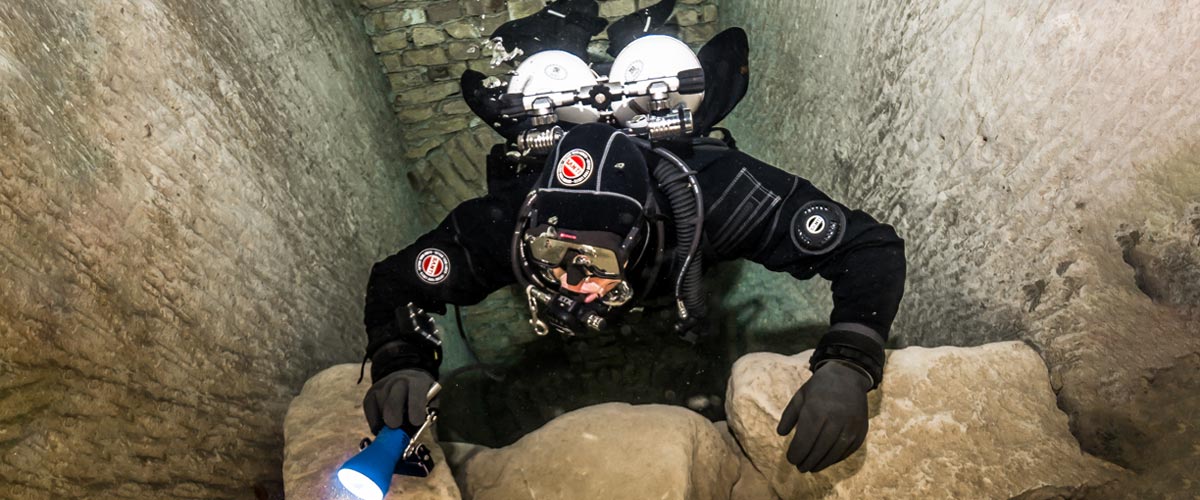
Article by José Pablo Mir
Pictures by Cezary Abramowski
The world of technical diving is exciting. It opens the door to new sites, depths, and bottom times. More importantly, it opens our minds to a new way of planning, facing, and experiencing dives, even those not purely technical.
Becoming a technical diver is a process, and like in other aspects of life, we should find the proper entry point that suits us best based on our knowledge and experience. The Introduction to Technical Diving course from TDI -the world’s largest and most recognized technical diving teaching organization- is the best option for divers who have yet to gain experience in the fundamental aspects of this new practice. The course’s content and its embrace of new techniques and technologies make it possible to acquire a solid foundation to learn and gain experience in this practice properly.
Becoming a technical diver is not something that happens overnight, whether deciding to become one or receiving a certification card stating we are now technical divers. It is a slow process extending farther away than any introductory course. It requires effort and dedication. But it will bring us satisfaction from day one -or two.
It is a matter of mentality
First, we must understand and accept that technical diving, involving greater depths, longer bottom times, exotic gases, virtual or real ceilings, and more, comes with higher levels of risk than the sport diving we have been practicing until now.
Although this discussion usually starts with a warning about risks, as I’ve done in the previous sentence, our practice is not a game of chance.
Technical diving is a rational activity that requires maturity and good judgment, and we will put everything into ensuring that each dive is a successful one -meaning we return from it safe and sound. With this understanding, we will strive to establish a mental attitude more aligned with our practice and its realities.
This new “technical diver” mindset we will develop will lead us to be more cautious in our executions, more analytical in our plans, more rational in our strategies, and more detailed in our procedures.
Experience will keep teaching us to know ourselves better, to keep our anxiety and other emotions under control, and to manage our impulses. Over time, our senses will sharpen, and we will be more attentive to the particulars of the situation we find ourselves in.
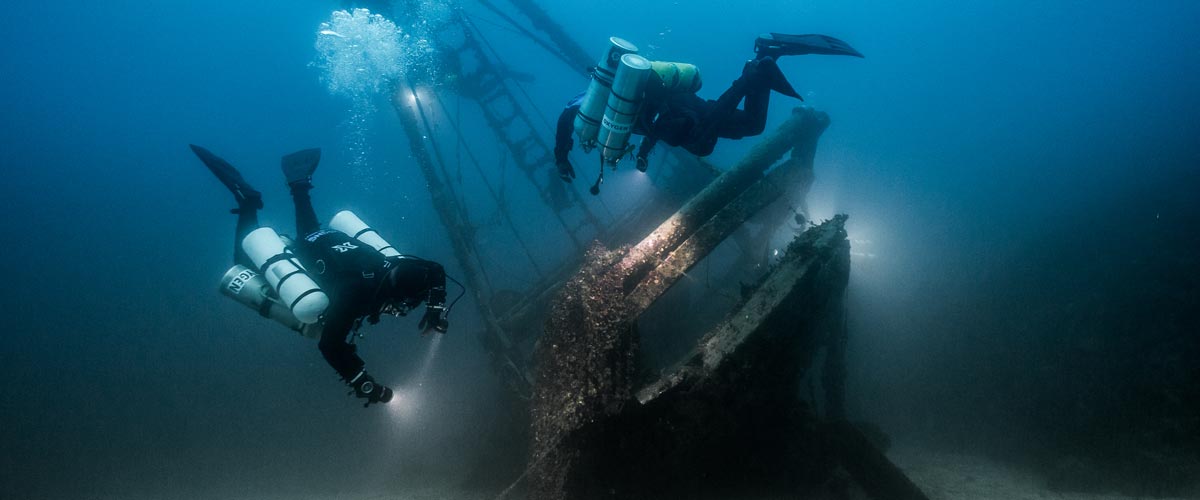
Strategies and procedures
Our strategies, those broad guiding lines tracing the path to follow, from how to approach planning to where, with what, and how we are willing to get there, will be more specific and more practical. Not because they magically become so, but because we will consciously and deliberately frame them that way.
We will establish clear, concise, and realistic procedures. Not only for the undesirable situations that may present themselves but also for those that are part of our dive objectives.
Even though, as technical divers, we often use equipment different from what we were previously accustomed to, it is essential to note that the gear does not make the diver. In a way, we could consider such equipment as the necessary tools to implement what our goal seeks to achieve, according to our strategies and procedures.
Technique plays an important role
We must put our greatest effort into learning and perfecting the different techniques we will be acquiring. Buoyancy, trim, propulsion, cylinder handling, deploying DSMBs and lift bags, valve drills, and more are essential skills we must begin to master to progress in our art. What we cannot do, when we need to do it, can harm us.
Our techniques must be effective and achieve the purpose for which they were devised. But they must also be efficient and require the least resources possible, including the time they take and the effort they demand. Effectiveness and efficiency will prevail over beauty and other considerations that may come to mind, although none of them should be mutually exclusive. A technique executed efficiently and effectively tends to have an inherent beauty.
Refining techniques is a lifelong mission. Some of them will be easy to master from the go; others, on the other hand, will be our life mission and will require many repetitions just to resemble the idea we have in mind of how they should be executed.
We must consider the environment
Our learning, the needs and musts of the practice we engage in, the experience we gradually gain, our strategies and procedures, and even our equipment and tools change with the environment.
Diving in the ocean, everything about us must be suitable for ocean dives. Conditions there rarely emulate those found in a pool, lake, or river. Variable winds and currents, greater depths, visibility conditions, other divers with uncertain skills around us, marine life, maritime traffic, distance from the coast, and many other factors add complexity and uncertainty.
It is never necessary to master the pool on the first day, but planning and aspiring to gradually cope with the ocean’s conditions is essential.
The cost of good training
We are aware that our resources are often scarce in relation to the possibilities of use we could give them if they were not. To a greater or lesser extent, we are part of the economic reality in which we are embedded.
Fortunately, the cost of good technical diver training is not an entry barrier. Comparing training and equipment costs, we see that the former are generally lower. Yes, lower cost for personalized service, essential to our future
performance and safety, than for a series of mass-produced products that are mere, albeit necessary, tools for an end.
The value of good training
The value of the training we received encompasses a range of characteristics, from emotional and methodological to technical and technological. TDI and its Introduction to Technical Diving course offer a deep and modern approach, with a teaching strategy that aims to create thinking divers, not merely obedient ones.
As technical divers, our knowledge is our primary tool. In this type of activity, what we don’t know can harm us.
Is this course optional?
Unfortunately, the fact that this Introduction to Technical Diving course is not a prerequisite for any subsequent training is an invitation to consider it optional. And we all know what usually happens to “optional” under budget constraints.
However, this course should be seen as optional only by those divers who are somehow familiar with the use of technical equipment, who have a mindset more in line with the requirements of this type of diving, who plan and execute the dives the proper “technical” way, who know their gas consumption rate, who are not intimidated by non-decompression tables, who feel comfortable using their dive computers, and know the techniques and have at least an acceptable level of buoyancy, positioning, and propulsion. Those can go straight to a more advanced training course, such as TDI’s Advanced Nitrox.
We must ask ourselves whether or not we are in that group.
Remember our goal: to have fun
Recreational diving is our passion. Jumping into the water carrying heavy equipment and having properly dotted our I’s and crossed our T’s have only one ultimate goal: fun. This is the activity we have chosen as a hobby. We must enjoy it; it must give us pleasure and make us vibrate.
Having a good time is not optional!
Blogs
Four opportunities to go pro in 2024 with Dive Friends Bonaire
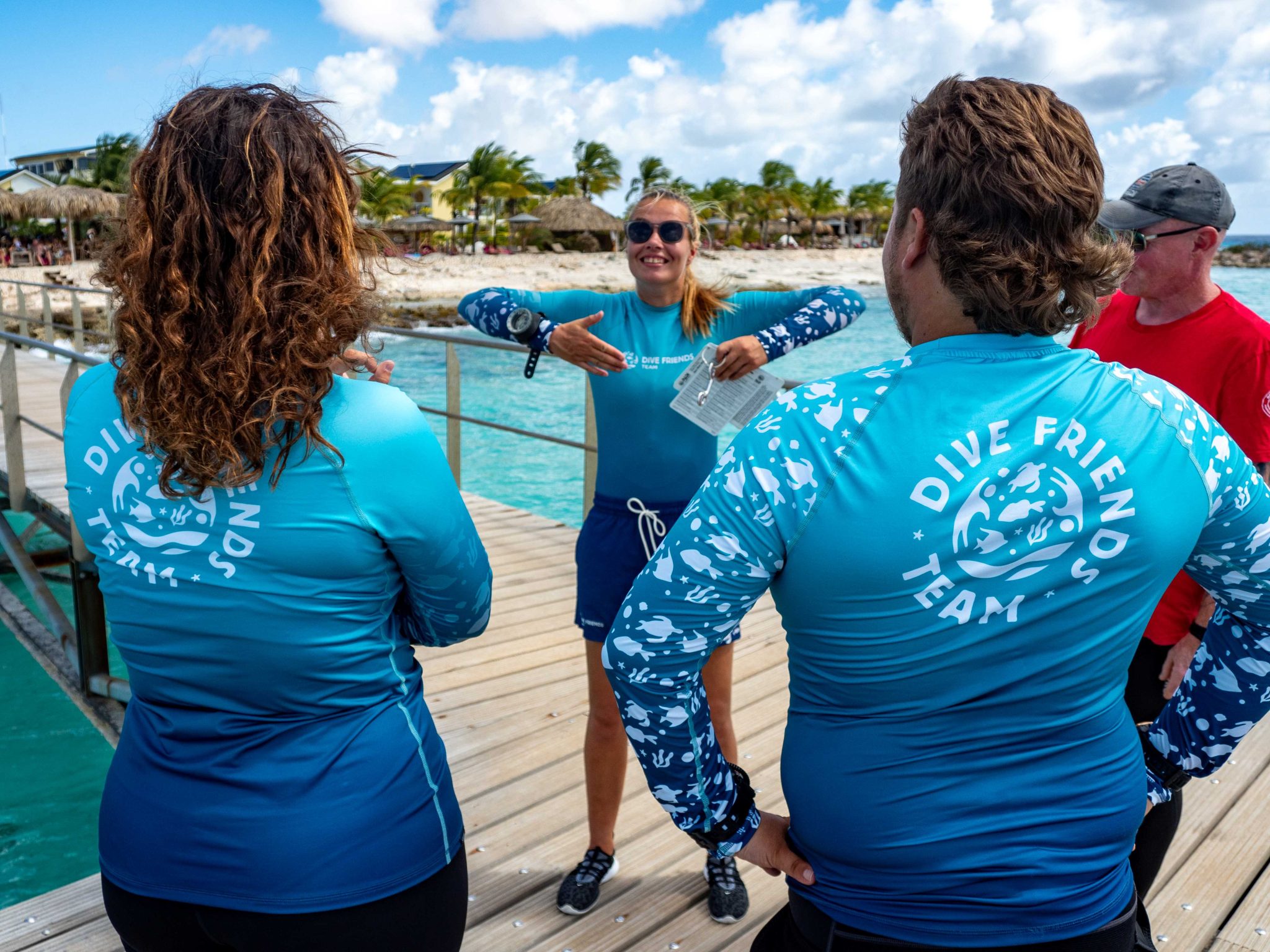
Dive Friends teaches the Instructor Development Course (IDC) several times a year to students who are eager to share their passion for diving with the world.
Dive Friends is known for the personal approach throughout the course. Their in-house course director will lead the students through every essential step, mentoring them to achieve their fullest potential as a dive instructor.
Applications for the following IDC start dates are now open:
- 12 April
- 5 July,
- 20 September
- 29 November
Partnership with Casita Palma
If the student opts for the IDC-Deluxe or IDC-Supreme package, their accommodation will be arranged for them at Casita Palma. This small and quiet resort is within walking distance from Dive Friends Bonaire’s main dive shop location and has everything you need to relax after an intense day of IDC training. Breakfast is included, so the student will always be fuelled and ready for their day.
Contact Dive Friends Bonaire’s Course Director Eddy for more information: coursedirector@divefriendsbonaire.com.
-

 News3 months ago
News3 months agoHone your underwater photography skills with Alphamarine Photography at Red Sea Diving Safari in March
-

 News3 months ago
News3 months agoCapturing Critters in Lembeh Underwater Photography Workshop 2024: Event Roundup
-

 Marine Life & Conservation Blogs2 months ago
Marine Life & Conservation Blogs2 months agoCreature Feature: Swell Sharks
-

 Blogs2 months ago
Blogs2 months agoMurex Resorts: Passport to Paradise!
-

 Blogs2 months ago
Blogs2 months agoDiver Discovering Whale Skeletons Beneath Ice Judged World’s Best Underwater Photograph
-

 Gear Reviews3 months ago
Gear Reviews3 months agoGear Review: Oceanic+ Dive Housing for iPhone
-

 Marine Life & Conservation2 months ago
Marine Life & Conservation2 months agoSave the Manatee Club launches brand new webcams at Silver Springs State Park, Florida
-

 News3 months ago
News3 months agoWorld’s Best Underwater Photographers Unveil Breathtaking Images at World Shootout 2023















